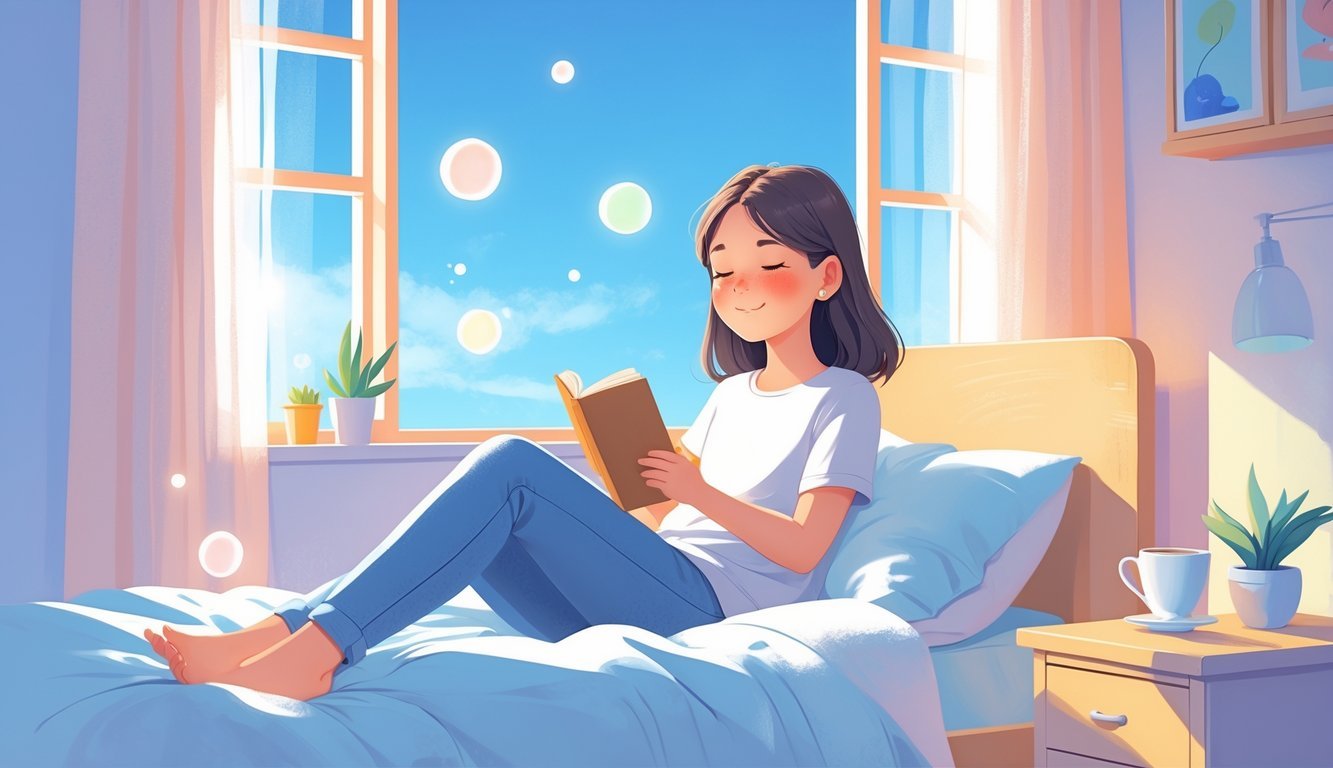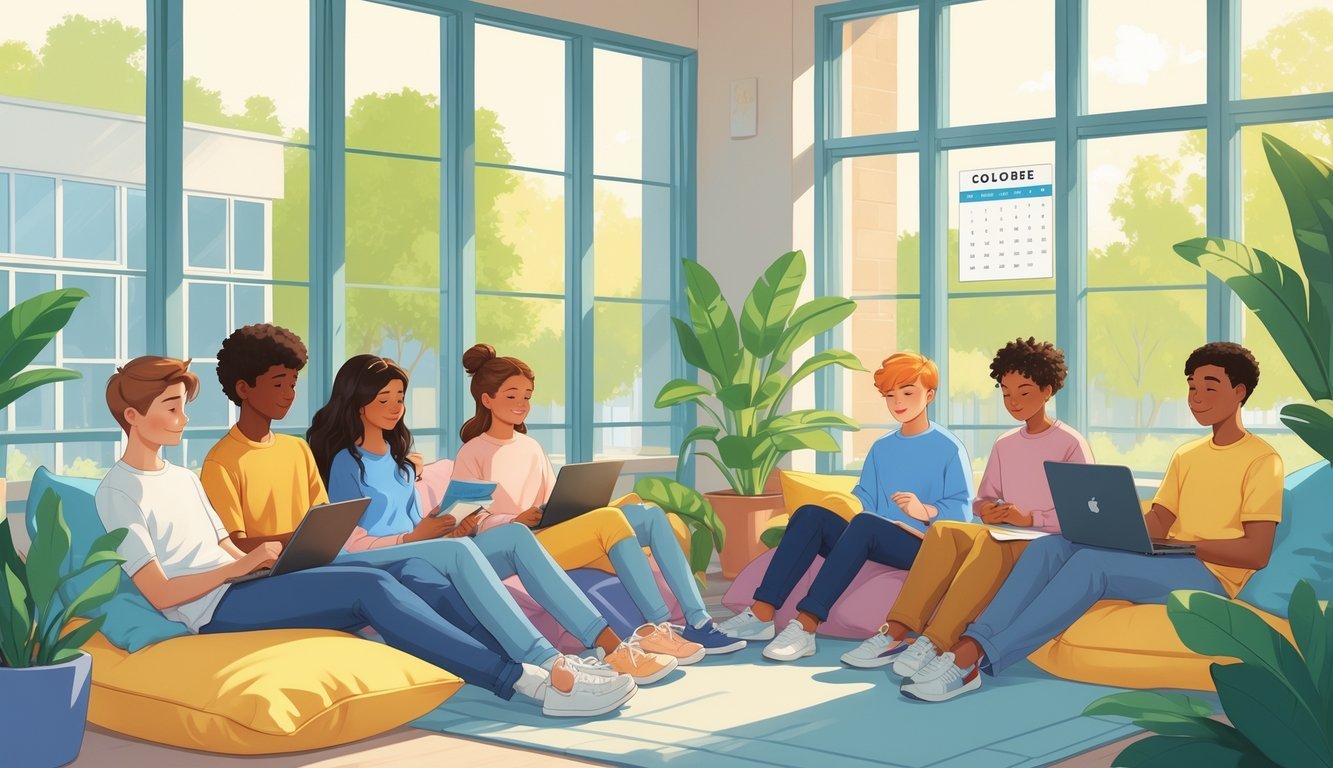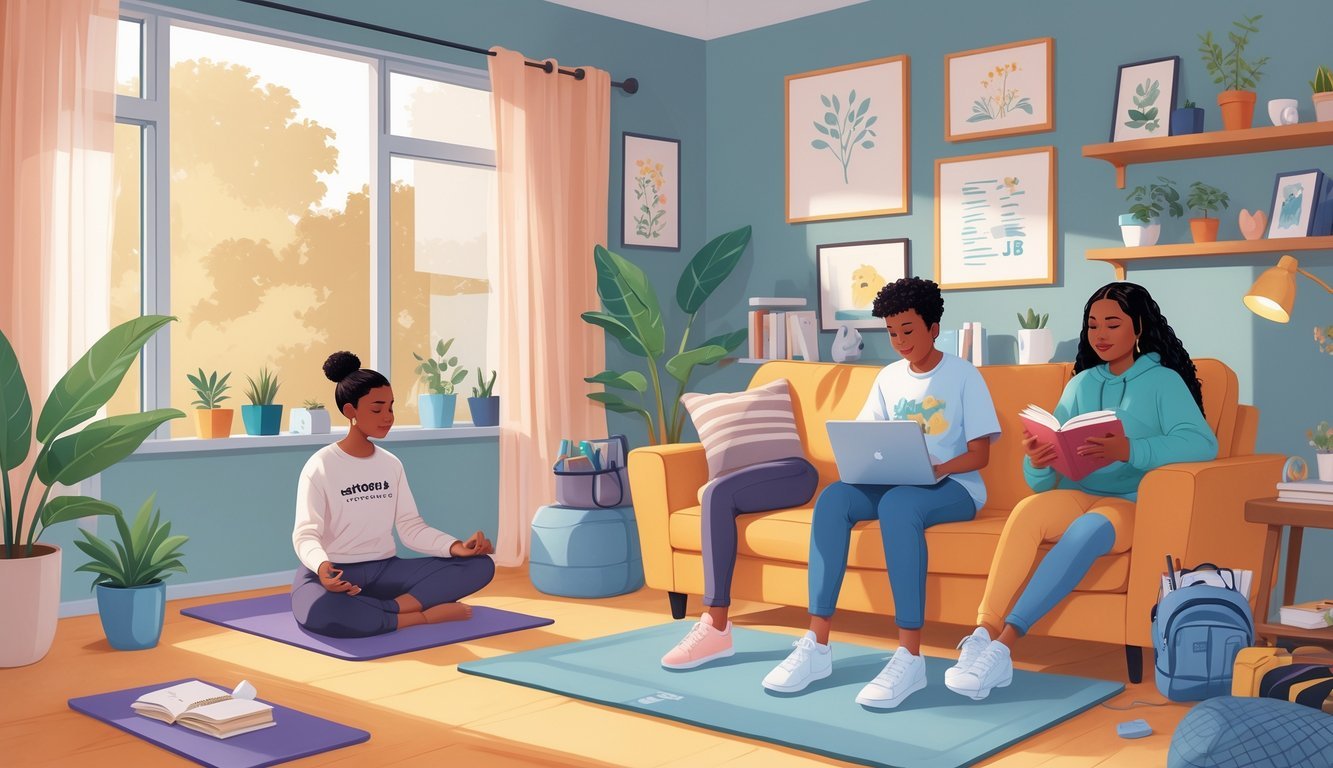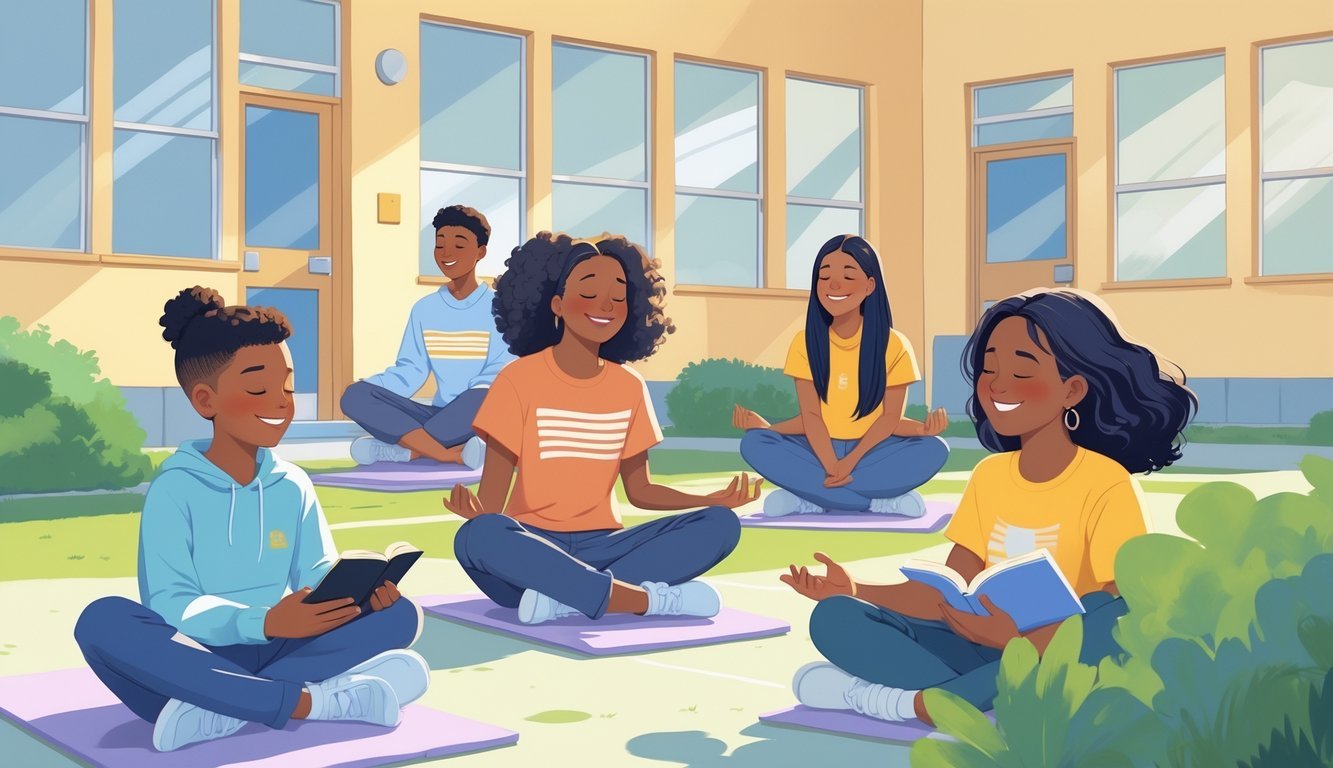PsychNewsDaily Publishers
100 Summit Drive
Burlington, MA, 01803
Telephone: (320) 349-2484
PsychNewsDaily Publishers
100 Summit Drive
Burlington, MA, 01803
Telephone: (320) 349-2484
Teenagers experienced reduced stress and improved mental health during the pandemic due to less academic pressure, more family time, and increased opportunities for self-care and hobbies.

When schools shut down during the pandemic, most people braced for a wave of mental health issues among teenagers. Surprisingly, some teens actually started to feel better during this period.
For kids who felt out of place at school or got overwhelmed by social pressure, the break from daily routines helped them relax. They didn’t have to deal with the usual stress, and that alone made a big difference.
Spending extra time with family and diving into hobbies made some teens feel lighter emotionally. With a quieter house and fewer social demands, it became easier for certain teens to find their footing and get a sense of balance.

During the COVID-19 pandemic, teenagers noticed some changes in their daily lives that actually improved their mental health. Less academic pressure, fewer awkward social run-ins, more family time, and better sleep all played a part.
When schools closed, teens suddenly had fewer deadlines and tests to worry about. This break from the classroom grind let you focus on yourself instead of constantly stressing about grades.
Some students felt less overwhelmed because they could set their own pace. Without the early morning rush or long hours, you had more control over your day.
That meant less anxiety about keeping up with assignments and exams. With fewer distractions and school stress, some teens finally found a bit of balance.
For teens who dealt with bullying at school, closures brought a sense of relief. Being away from classrooms and crowded hallways cut down on negative interactions that could wreck your confidence.
Online learning made it easier to dodge social pressures and avoid bullying altogether. This helped many teens feel safer and less anxious.
It also gave you space to work on new coping skills and focus on personal growth.
School closures kept teens at home with their families. Extra time with parents or siblings led some teenagers to feel more supported and understood.
You might have enjoyed stronger bonds by talking more, sharing activities, or just leaning on each other. That sense of belonging and safety really matters for mental wellbeing.
Without early alarms for school, many teens finally got to sleep in and set a schedule that worked for them. Better sleep helps your brain function and makes it easier to handle stress.
Some teens said they felt more rested and alert during the day. That extra rest improved their mood and focus.
A steady sleep pattern can make you less anxious and tired, plain and simple.

When schools shut their doors, your daily routine probably changed a lot. New habits around exercise, screen time, and ways to handle stress became pretty important.
With no commute and fewer hours tied up in school, you might’ve had more time for physical activity. Some teens started going for walks, biking, or trying home workouts.
Exercise helped shake off stress and lifted moods just by getting your body moving. Even short bursts like stretching or dancing made a difference.
If you were stuck in remote classes, taking breaks for exercise helped balance out all that screen time and kept your energy up.
Screen time definitely went up for most teens, but tech also let you stay close to friends. Chances are you used video calls, group chats, or social media to keep those connections going.
Social media made it easier to share how you felt, plan online hangouts, and stay in the loop with friends. These tools cut down on isolation, especially if you already felt left out at school.
It mattered to manage screen time, though. Setting limits and picking positive online spaces helped keep your mental health in check.
Being away from school forced you to find new ways to deal with stress and uncertainty. Maybe you tried making daily plans, set small goals, or picked up hobbies that made you happy.
These coping skills—like planning fun things or staying connected online—helped you get better at handling tough situations. You grew more resilient as you adapted to remote learning and new routines.
An online survey found that teens who tried these strategies felt better mentally. Figuring out what works for you is a key part of managing stress and staying well.

Some teenagers felt less stressed and in better moods during school closures. Here are some answers to common questions about how teens coped and what parents or schools can do to help.
Some teens felt less pressure without daily school routines. They had more time to sleep and do hobbies they actually like.
Teenagers who felt left out at school sometimes felt more connected to themselves during closures.
Try to keep a routine that mixes rest, schoolwork, and downtime.
Talk with your teen and really listen without judging.
Encourage healthy habits like exercise and sticking to a regular sleep schedule.
Many teens picked up new skills online or tried creative activities at home.
Some stayed close with friends using video chats or social media groups.
They adjusted to new learning formats and found fresh ways to manage their time.
Research found that some teens felt better mentally when they got a break from school’s social stresses.
Students who felt disconnected before sometimes reported feeling calmer during closures.
That suggests time away from school boosted some teens’ wellbeing.
Schools offered online counseling and mental health resources.
Teachers checked in with students regularly to offer support.
Some schools set up virtual clubs or activities to keep students engaged.
When teens stayed in touch with friends, they felt less alone.
They used flexible online chats to support each other.
Some teens actually felt less social anxiety and noticed their mood improve with the change in peer contact.